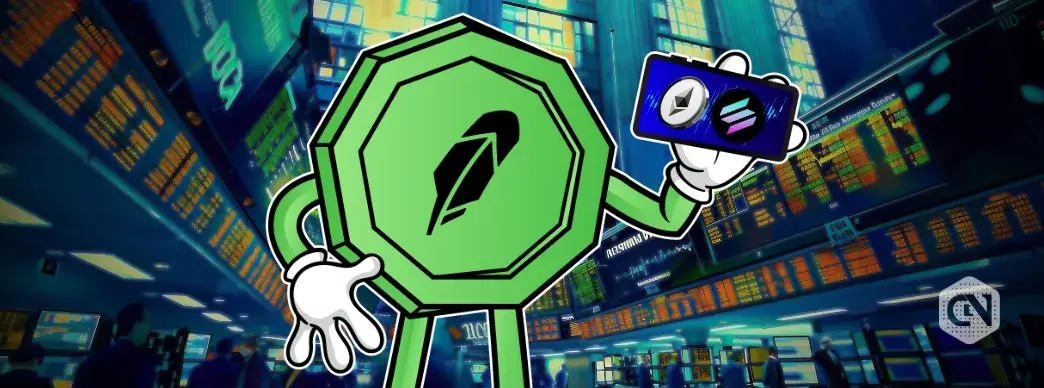Robinhood has officially introduced crypto staking for eligible U.S. customers, starting with Ethereum (ETH) and Solana (SOL). The investment platform will simplify blockchain participation by offering a smooth staking interface with competitive rewards.
You’ve been asking for this.$ETH and $SOL staking are now available to U.S. customers.#RobinhoodPresents https://t.co/g2tVe85G4W pic.twitter.com/AaJaPCLbpv
— Robinhood (@RobinhoodApp) June 30, 2025
The feature, already available in the EU and EEA, allows users to earn passive income on Robinhood by helping secure these networks.
“Our latest offerings lay the groundwork for crypto to become the backbone of the global financial system,” Robinhood Chairman and CEO Vlad Tenev said.
Crypto staking allows users to earn rewards by locking up their coins to help run a blockchain network. Instead of just holding cryptocurrencies like ETH and SOL, users can “stake” them to support transactions and security, similar to earning interest in a savings account. In return, the network pays users with additional crypto, known as crypto rewards.
Robinhood Rolls Out Staking in U.S. Amid Ongoing Regulatory Ambiguity
Robinhood is introducing a crypto staking service in the U.S. amid ongoing regulatory confusion. Even though the SEC recently clarified that crypto staking isn’t illegal under federal securities laws, many U.S. states still block or restrict it. This creates confusion for crypto companies and investors who now face different rules depending on where they live.
In May 2025, the SEC confirmed that most crypto staking does not count as selling securities, which is a big win for the industry. On May 29, the SEC’s corporate finance division clarified that some types of crypto staking do not qualify as securities offerings under U.S. federal law.
While this guidance isn’t an official rule, it shows that the SEC does not view typical proof-of-stake (PoS) blockchain activities as illegal securities sales.
According to experts, this is a major development that provides much-needed clarity for the crypto industry. The decision helps legitimize staking services, where users lock up crypto to support networks and earn rewards, without fear of federal securities law violations.
SEC Commissioner Hester Peirce supported the agency’s new staking guidance, saying previous regulatory uncertainty had discouraged users from participating. It hurts blockchain decentralization, according to Hester Peirce. She called the clarification “welcome news” and suggested her team would continue assessing how securities laws apply to other crypto network activities.
But while the federal government gave staking the thumbs-up, several states like California, New Jersey, and Wisconsin still treat it as if it were a regulated investment product.
This forces crypto platforms to jump through extra legal hoops just to offer staking services.
Coinbase CEO Brian Armstrong has called out these states for sticking to what he calls a “flawed” view of staking. He argues that these restrictions hurt everyday investors by cutting them off from earning rewards.
Also Read: Bitcoin Treasury Capital buys 81 bitcoins for $8.7 million
